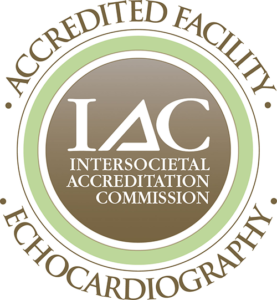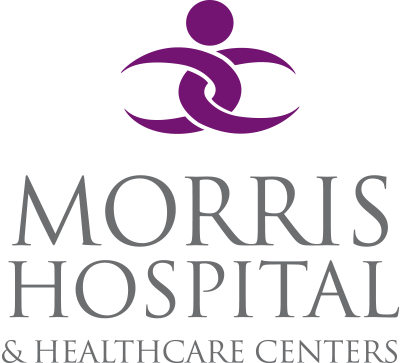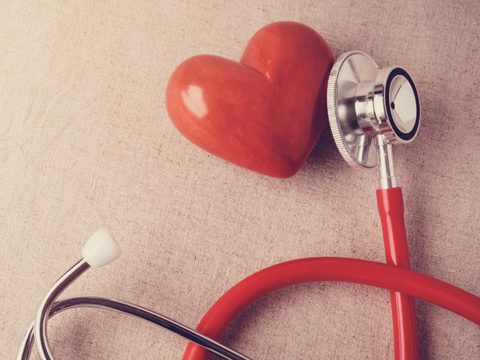As the leading cause of death in the United States, cardiovascular disease affects many families in our local communities. The physicians and staff at Morris Hospital & Healthcare Centers are committed to providing advanced cardiovascular care locally. Our comprehensive services include diagnostic testing and advanced treatment in our catheterization lab, along with three phases of rehabilitation to assure patients stay on the road to recovery.
For more information about our Cardiovascular Services , please call 815.942.2932, ext. 1170.
CARDIAC DIAGNOSTICS
 An accurate diagnosis is the foundation of cardiovascular care. At Morris Hospital & Healthcare Centers, we offer a range of diagnostic tests to uncover suspected heart or circulation problems:
An accurate diagnosis is the foundation of cardiovascular care. At Morris Hospital & Healthcare Centers, we offer a range of diagnostic tests to uncover suspected heart or circulation problems:
- Electrocardiogram (EKG). A 12-lead electrocardiogram measures electrical activity of the heart. By placing electrodes (small stickers) at specific locations on the body, a graphic image, or tracing, of the heart’s electrical activity can be viewed. The tracing is then read by a physician. Changes in an EKG can indicate one or more of several heart-related conditions.
- Holter Monitoring. Holter monitoring provides a record of a patient’s electrical heart activity over a 24-48 hour period. A small heart monitor is attached to the patient and remains in place for 24-48 hours. Patients go about their normal life activities. The monitor is then removed by the patient or a staff member of the hospital and returned to the hospital so it can be read by a physician.
- 30-Day Event Monitoring. Event monitoring is designed to report irregular heart rhythms to your physician. A small heart monitor similar to the Holter monitor is attached to the patient. During monitoring, patients use auto-triggering devices that automatically sense and record heartbeat irregularities.
- Echocardiogram. Also known as an Echo, this test shows an image of the heart by using ultrasound technology. During the test, patients are required to rest on their back or left side while a technologist uses an ultrasound machine, similar to the one used during pregnancy, to take images of the heart for the physician to review.
- Basic Stress Test. During a stress test, a patient walks on a treadmill while an EKG is recorded. This test is done to assess how the heart and blood pressure respond during exercise.
- Stress Echo. The stress echocardiogram evaluates the heart’s response when its rate increases with exercise. This test is like the Basic Stress Test listed above but also includes ultrasound pictures. Ultrasound, or echocardiogram, is performed before and after exercise to determine how well the heart functions with exertion.
- Cardiolite Nuclear Stress Test. This nuclear imaging study uses a radioactive tracer, called Cardiolite, to produce images of the heart muscle. When combined with stress, either through exercise or the use of a pharmacological agent, the Cardiolite scan helps determine if the heart muscle is getting an adequate blood supply.
- Pharmocological Stress Test. This test uses a medication to make the heart feel like it is exercising. The patient will have an IV started and medication will be infused. This test is used mainly for patients who are unable to walk on a treadmill.
- Transesophageal Echocardiogram. A transesophageal echocardiogram is a special type of ultrasound test that uses sound waves to take very clear pictures of the heart. It is used in special circumstances when the doctors want to obtain ultrasound images that have more detail than a regular echocardiogram. The study is done by passing a special tube down the throat into the esophagus or food pipe. The end of this tube is placed near the heart which allows very clear, detailed pictures to be taken. The patient is given medication to help relax for this exam.
- Tilt Table Testing. This test is commonly used on individuals who have a history of syncope or fainting. It helps determine some of the causes of fainting spells. The patient will be resting on a bed and brought into an upright standing position for a period of time to assess for fainting.
- Coronary and Peripheral Angiography. In the Cath Lab, an angiogram is the most definitive way to evaluate patients for coronary artery disease. During this test, the physician inserts a narrow, flexible plastic tube, or peripheral catheter, into the artery. An x-ray is taken that reveals a potential narrowing or blockage in cardiac arteries, carotid arteries, renal arteries, leg arteries, or other extremities. Medication is given to help the patient relax for this test.
CARDIOVASCULAR INTERVENTION
Whether your cardiovascular problem is caused by artery blockages or abnormal heart rhythms, the cardiologists at Morris Hospital offer a wide range of treatment options to help you regain your health and return to a full, productive life.
- Angioplasty. Coronary and peripheral angioplasty are medical procedures in which a small balloon is placed in the narrow or blocked area of the artery, and is then inflated and deflated to relieve the blockage and allow blood to flow freely through the arteries. A small stent is sometimes placed in the artery to reduce the chance of blockage reoccurring. At Morris Hospital, angioplasty and stent procedures are used to effectively treat blockages of the heart, renal (kidney), arm and leg arteries.
- Stents. A stent is a stainless mesh tube that’s mounted on a balloon catheter in a “crimped” or collapsed state. When the balloon is inflated, the stent expands or opens up and pushes itself against the inner wall of the artery. This holds the artery open once the balloon is deflated and removed. Some stents today are coated with medications that slowly release the medicine to the artery being treated.
- Peripheral Atherectomy. Compared to angioplasty which pushes plaque against the artery wall, atherectomy removes plaque using a rotating shaver on the tip of a catheter.
- Artificial Pacemaker. An artificial pacemaker is a small, battery-operated device that helps the heart beat in a regular rhythm. This small device is placed under the skin through a small incision in the upper chest.
- Implantable Cardioverter Defibrillator (ICD). An implantable cardioverter defibrillator is placed in patients to maintain and correct the heart’s rhythm. The device is connected to leads (special wire) positioned inside the heart or on its surface. The leads are used to deliver electrical shocks, sense the heart’s rhythm and sometimes pace the heart, as needed. The various leads are tunneled to a pulse generator, which is implanted in a pouch beneath the skin of the chest or abdomen.
- Cardioversion. Cardioversion is a brief procedure in which an electrical shock is delivered to the heart to convert an abnormal heart rhythm back to normal. Cardioversion can be used in emergency situations to correct a rapid, abnormal rhythm but is also done in an outpatient setting to correct an abnormal rhythm. Medication is given to help the patient relax during the procedure.
LIFESAVING HEART ATTACK TREATMENT
At Morris Hospital, patients with suspected heart attacks receive immediate, expert care from physicians and nurses trained to diagnose and treat heart attacks quickly and effectively.
Diagnosis begins with a 12-lead EKG (electrocardiogram) that is started within the first five to 10 minutes of arrival at the Morris Hospital emergency department. Some of the emergency medical services (EMS) providers in our area are able to perform EKGs at the scene and transmit the results to a hospital emergency room in advance of a patient’s arrival. This saves precious time and helps to alert the hospital staff of the pending arrival of a heart attack patient.
If the EKG confirms a heart attack, our on-call cardiac cath team is immediately notified. The patient is taken to our fully equipped cardiac catheterization lab where a team led by a cardiologist uses angioplasty and stents to open the blocked artery. This lifesaving treatment is available 24 hours a day, seven days a week.
The American College of Cardiology recommends a balloon angioplasty or other appropriate cardiac intervention within the first 90 minutes of a heart attack patient’s arrival at the hospital. The average door-to-balloon time at Morris Hospital is well below the 90-minute guideline.
MORRIS HOSPITAL CARDIOVASCULAR SPECIALISTS
Morris Hospital Cardiovascular Specialists is a medical practice managed by Morris Hospital & Healthcare Centers that includes interventional cardiologists, a general cardiologist, and an electrophysiologist. They are experienced local resources who specialize in the prevention, diagnosis and treatment of cardiovascular disease. To schedule an appointment or request more information about the Morris Hospital Cardiovascular Specialists, please call 815.705.1000.
To see all of the cardiologists on the Morris Hospital Medical Staff, please visit our online provider directory.
CARDIAC REHABILITATION
The dedicated cardiac rehabilitation team at Morris Hospital is available to help individuals with heart disease recover faster and regain full, productive lives. Our program is small and personal to allow time for each patient’s individual needs. The patient’s personal physician is kept informed of progress through rehabilitation.
Developed in accordance with the American Association of Cardiovascular and Pulmonary Rehabilitation (AACVPR), our cardiac rehabilitation program includes three distinct phases, the first which takes place during hospitalization following a cardiac event.
Phase II is a medically supervised, 6-12 week outpatient program after patients have had a heart attack, coronary angioplasty/stenting, coronary artery bypass surgery, valve repair/replacement, and/or stable angina. Congestive heart failure is also a Medicare approved diagnosis if certain criteria are met. Classes involve warm-up exercises, followed by a conditioning program of individually prescribed exercises and a cool down period. Phase II also includes educational classes like “Heart 101,” which teaches about the different types of heart disease, the causes and symptom recognition, proper action to take and lifestyle habits for heart attack prevention. Additional educational classes include “Heart Healthy Eating” and “Emotional Recovery.” Private consultations with a Morris Hospital Registered Dietitian and a Registered Pharmacist are offered as part of our educational process.
Phase III is a maintenance program for individuals who like to participate in a structured exercise program.
Both Phase II and III take place on an outpatient basis at the Diagnostic & Rehabilitative Center of Morris Hospital on Gore Road, north of Interstate 80 in Morris.
The Cardiac Rehabilitation program at Morris Hospital has maintained its certification from AACVPR since 2010. This ongoing certification indicates Morris Hospital is providing a quality cardiac rehabilitation service consistent with evidence-based and nationally established standards of care.
For more information on Cardiac Rehabilitation, call 815.705.7832.


